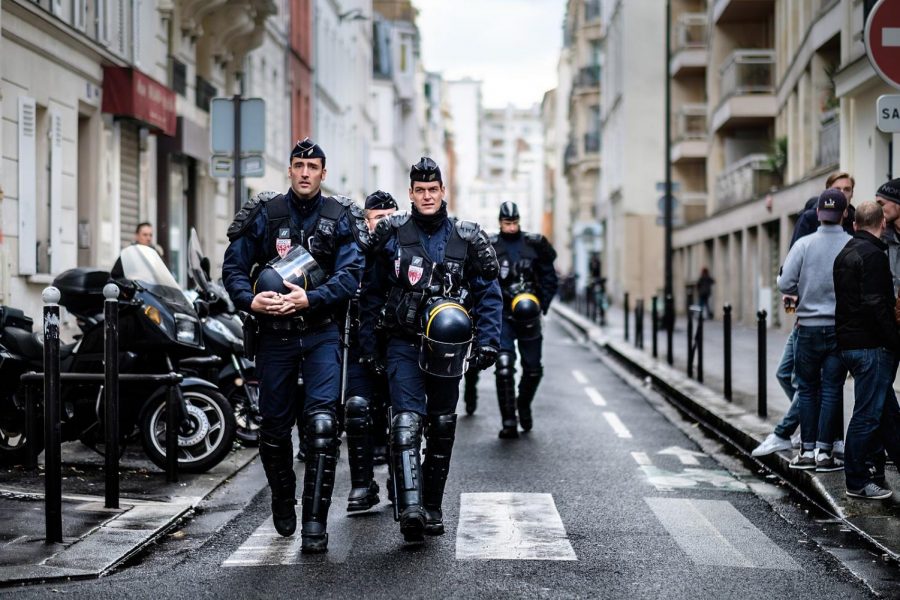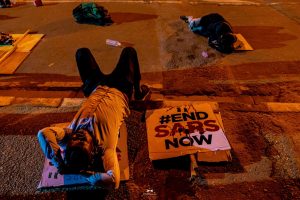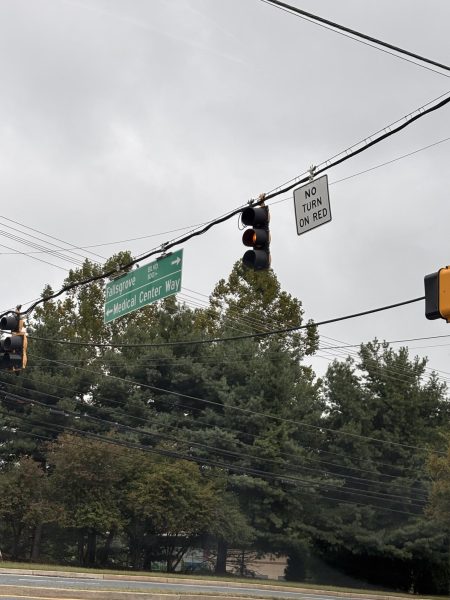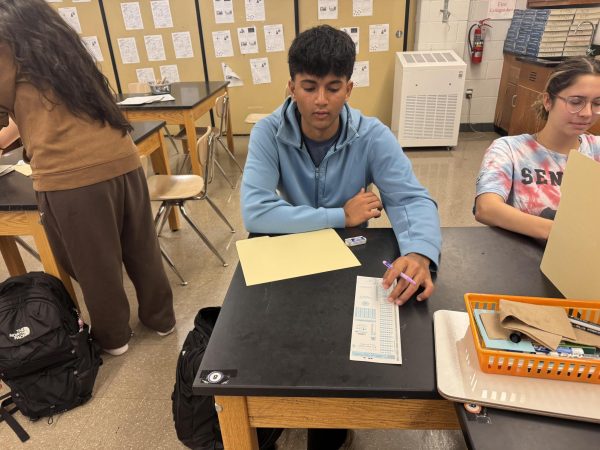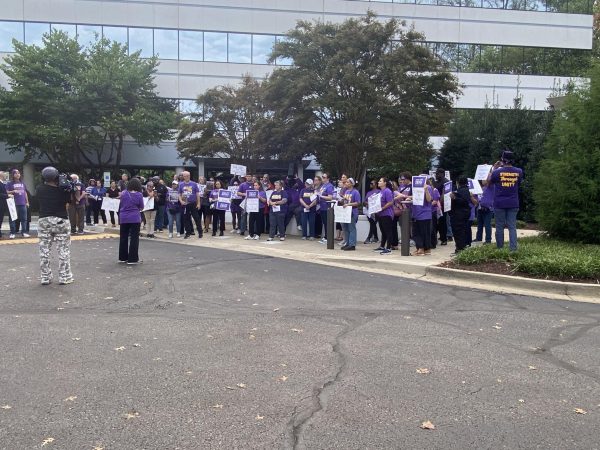French Global Security Bill stirs controversy, protests over restrictions on imaging of police officers
Photo used with permission from Google Commons
French Anti-Riot Police patrol the streets of Paris.
Starting in November, protests and other assorted demonstrations have sprung up across the nation of France. The reason for this uprising is the recent introduction of a new Global Security Bill to the nation, passed on Nov. 24, which has raised a large amount of controversy because of a segment of that bill known as “Article 24,” which, according to The New York Times, “prescribes a penalty of a year in prison and a fine of some $54,000 for anyone who broadcasts ‘the face or any other identifying element’ of police officers in action if the goal is to ‘physically or mentally harm’ them.”
Members of the public have been in outrage over the situation. Journalist unions, human rights groups and political activists have arranged demonstrations and argued for the removal of several sections of the bill, including Article 24.
Advocates of the bill claim that the intent is not to silence the media or the public, but to prevent the harassment of police officers on social media platforms. Critics argue that its terms are nonspecific, with the intent to “physically or mentally harm” being too open to interpretation and potential abuse.
The resistance to the bill has resulted in protests, some of which have resulted in violent confrontations with the police. “[t]he windows of a supermarket, property agency and bank were smashed, according to the AFP news agency, and police responded to the violence by firing tear gas,” on Dec. 5, according to BBC News.
The French police force has been criticized for its actions recently, with studies showing racial discrimination in the French police and court systems, according to The New York Times. The murder of George Floyd in America also served to increase awareness of this situation.
Public backlash to this new bill only became more pronounced after a video of policemen beating Michel Zecler, a 41-year-old Black music producer in Paris, was released to the public on Nov. 26.
“The people who are supposed to protect me are holding me at gunpoint … I would like that it never happen again, for anyone,” Zecler said to reporters afterward, “camera or no camera.” He also said that he “thought it was [his] last day,” and that he felt lucky that video evidence of the event was recorded.
Zecler’s lawyer, Hafida El Ali, agreed, stating that Zecler was “lucky to have these videos.”
“If we didn’t have that, unfortunately, he would obviously be detained,” El Ali said “Because it’s his word against the word of the police officers, and we know perfectly well that it’s the police officers that would win.”
French President Emmanuel Macron has called this incident “shameful,” according to BBC News, and asked for government solutions in rebuilding trust between the government and police. According to The New York Times, he has already done this twice before, once after the murder of Cédric Chouviat, a 42-year-old deliveryman, after a chokehold was performed on him by police officers, and again after the public outcry resulting from the killing of George Floyd in the US.
In an attempt to address the backlash, government officials associated with Macron’s party have stated that portions of the bill would be re-written. That promise, however, has not satisfied critics.
Your donation will support the student journalists of Thomas S. Wootton High School. Your contribution will allow us to purchase equipment and cover our annual website hosting costs.
Elliot Wang is a 2021 graduate.


